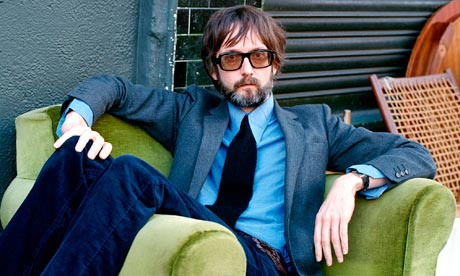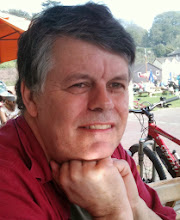Paul Morley on music: why Jarvis Cocker represents the future
The singer's field recordings for the National Trust are the most radical, forward-thinking music of the year

Rock and pop music, and assorted mutant sub-genres, is so everyday, so available, so not as special as it once was before it became so much a part of our surrounding world, it's interesting to wonder if there might be some sort of replacement as the 21st century develops for that kind of mind-shattering combination of sound, science, art, rhythm and image.
The release of yet another nicely made single or album by yet another solo act or group lined up for yet another award show or festival or item of gossip, yet another product given four stars and a spray of compliments, does not really set the blood racing, however pleasant or even surprising it might be. Pop has made its self-assertive point, very well, and it's taken over, but it's no longer the shock to the system it once was. It turns over, recycling, requoting, refining, reproducing, and all its delectable secrets have been more or less revealed. It's just one ingredient in a general cacophony where everything, even a sort of avant garde, is marketable and participants, effects, poses, beats, conceptual flourishes are all familiar.
Will something emerge that will be as unrecognisable to us now as, say, the Velvet Underground, Kraftwerk, Sly Stone, Jimi Hendrix orCan would have been in 1910? Something that is more about the subversive, deliberately ambiguous ideas it carries with it, and not tired notions of coolness and hipness and career opportunities? The pop and rock era might yet be a part of the latest stage in a journey that means what happens musically in the next 100 years is even more exciting that what has just happened. But that means change that changes everything.
There were early clues to what was to emerge in the 60s and beyond – Duchamp, the blues, the idea of the edit, cubism, futurism andRossolo's Art of Noises, Rimbaud, Ravel, jazz, the microphone. To some extent, what happens next might still refer back to that particular narrative but from post-musique concrete, post-rock, post-computer, post-sampling, post-interactive positions which are generating new contexts where genuine radicalism can emerge.
Oddly, this brings me to Jarvis Cocker and the deadpan collection of field recordings he has produced on behalf of the National Trust (free to download at its website) – a bringing together of small sounds from everyday life, faithful recordings of birdsong, gravel paths, creaking stairs, lapping water and chiming clocks. It's not at the avant-garde edge of classical music (as represented by Cage, Schaeffer, Oliveros, Lucier or Varèse's "liberation of sound"), or at the pop edge of the avant garde (from Eno, Fripp and Czukay to glitch etc) – and it sounds quite quaint next to, say, Janek Schaefer's stimulating, sophisticated assemblies or ex-Cabaret Voltaire member Chris Watson'shallucinatory nature recordings.
But from a friendly, loved pop face, it constitutes a thoughtful proposal that this kind of contemplation of sound, involving the pure isolation of its surface, depth and mysterious presence, can be a discreet reminder of the experimentally achieved occult electro-sonic qualities that are a key part of pop's appeal. It's a polite reminder that music, however it is assembled, whatever it consists of, however it is classified, is about the mind and the imagination as much as it's about buying, swapping, listing and grading music and reminding you of your past.
Cocker's pause-for-thought souvenir of time, place and sensation suggests a ghostly hint of what musically comes next in what has become known, drearily, as sound art – which is sonic sculpturing, the transformative integration of music and art, a continuation of John Cage's challenging observation in 1937 that music was now "the organisation of sound". Cage rejected composition in the traditional sense in pursuit of an energising new music that combined randomness, found sound, recording, theory and manipulation with rigorous compositional perception.
As a judge on the PRS for Music Foundation's New Music award, which is giving £50,000 in September to fund the compositional construction of an innovative new work, I'll let you know during the next few months about the shortlist and further possible hints of the emergence of a post-recording-era hybrid unrecognisable to us now. As Cocker implies with his dreamy National Trust recordings, the future of music, its next progressive steps, might have more to do with Cage's patient, exploratory theories about thinking and hearing than with the busy, blatant success of pop in making its presence felt time and time again.


No comments:
Post a Comment